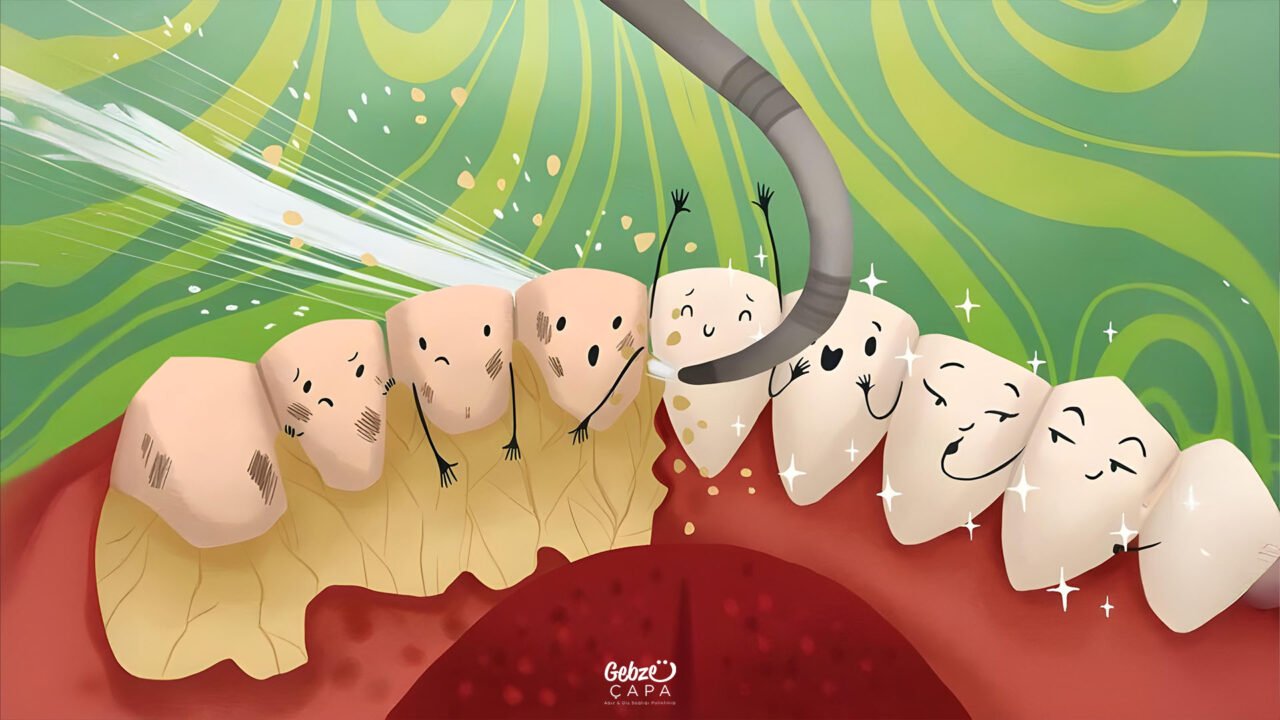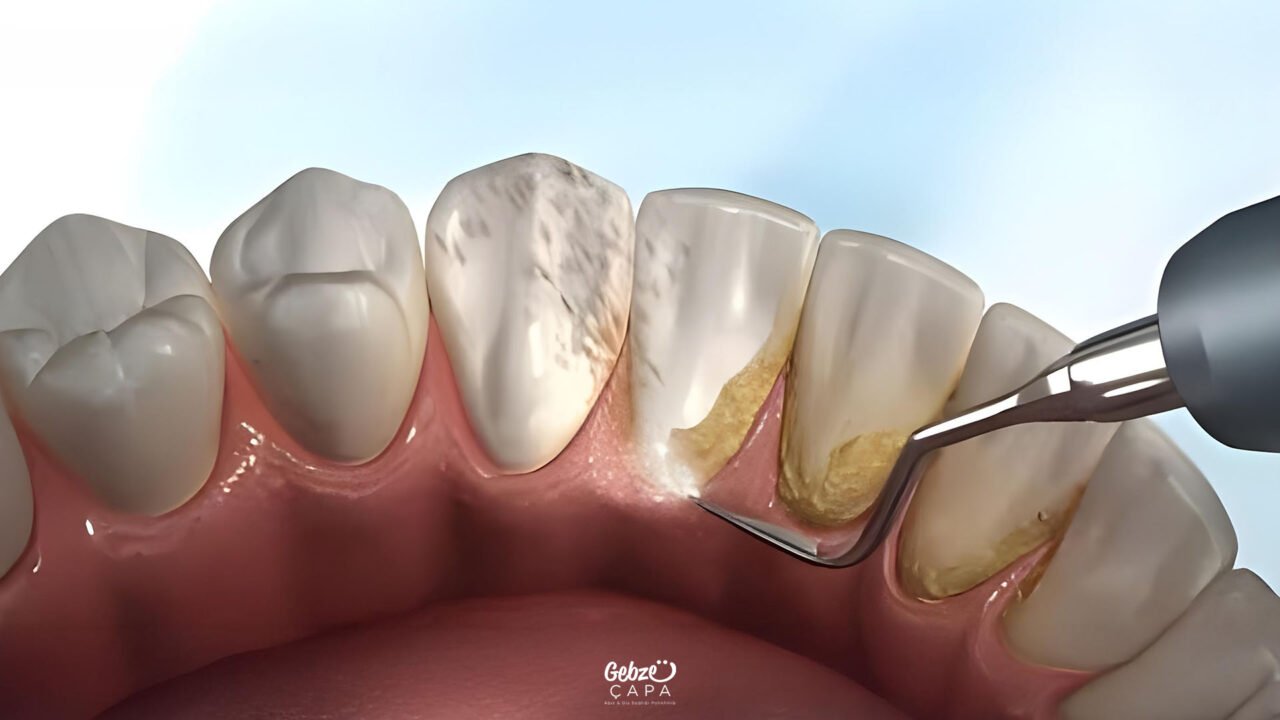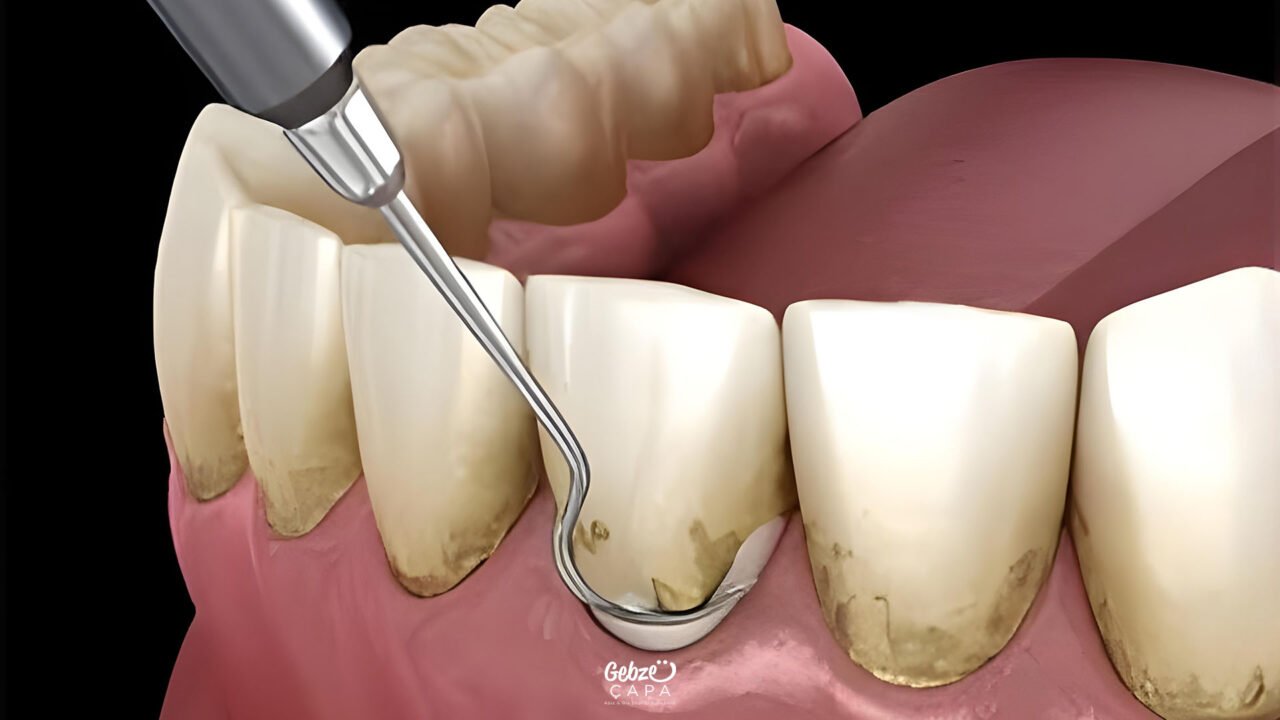Stinging After Dental Stone Cleaning
Dental scaling is a basic procedure that must be done regularly to maintain oral and dental health. This process cleans the plaque that accumulates on the teeth and hardens over time, turning into dental stone. Tooth tartar not only creates an aesthetic problem, but can also lead to gum diseases, tooth decay and bad breath. After dental scaling, some individuals may experience short-term tooth sensitivity or mild pain.
What is Dental Stone Cleaning?
Dental tartar consists of plaque that accumulates on tooth surfaces and hardens and mineralizes over time. Plaque occurs when bacteria accumulated in the mouth combine with food residues and minerals in saliva. Plaques that are not cleaned in time can turn into tartar and accumulate above and sometimes below the gum line, causing more serious problems.
In addition to being aesthetically disturbing, tartar can cause gum disease, which can lead to gingivitis, gum recession, and even tooth loss. Additionally, since the surface of dental stones is rough, it allows bacteria to cling more easily and multiply in the mouth. This situation brings along other oral health problems such as bad breath and cavities.

What Causes Stinging After Dental Stone Cleaning?
- Gum Sensitivity
Since gum tissues are intervened during dental scaling, it is normal for unhealthy or sensitive gums to experience slight tingling or sensitivity after the procedure. This situation is felt much more clearly especially in individuals with gum disease.
- Exposing the Root Surface
Tooth stones hide the tooth roots by pushing the gums. When scaling is done, the tooth roots are exposed again, and you may notice increased sensitivity when you consume hot or cold foods and drinks.
- Wrong Oral Care Habits
Incorrect oral care habits or inadequate oral care may cause increased sensitivity after cleaning. Teeth may become more sensitive after cleaning, especially if regular brushing or flossing is not followed.
- Dentist Intervention
Ultrasonic devices and manual tools used during dental scaling may cause a slight discomfort in the tooth enamel. However, this feeling is usually temporary and does not cause serious pain.
How Long Does Itching Last After Dental Stone Cleaning?
The tingling that occurs after dental scaling is usually a short-term condition. Mild sensitivity subsides within a few days. However, this period may vary depending on the person’s oral health status and the extent of cleaning. If pain or discomfort persists for more than a week, you should consult your dentist.
What Can Be Done to Reduce Pain?
- Use Desensitizing Toothpastes
Toothpastes produced specifically for tooth sensitivity can help relieve pain by protecting sensitive areas of tooth enamel. Such products provide relief with regular use. - Practice Correct Brushing Techniques
Be careful to brush your teeth with gentle movements with a soft-bristled toothbrush. Brushing too hard can damage your gums and worsen existing sensitivity. - Gargle with Warm Salt Water
The salt water mixture that you will prepare by adding some salt to a glass of warm water will soothe your gums and reduce bacteria in the mouth. This method provides relief while supporting the healing process.

Why is Dental Stone Cleaning Important?
Dental scaling is one of the basic elements of maintaining oral and dental health. Plaques accumulated on the tooth surface harden over time and turn into dental stone. These hardened plaques are not only aesthetically disturbing; It can also lead to serious health problems ranging from gingivitis to tooth loss. Dental tartar provides a suitable basis for bacteria to multiply and opens the door to problems such as gum recession and bad breath.
With dental scaling, these plaques are removed, protecting the health of the gums and ensuring that the teeth have a cleaner and healthier appearance. Additionally, this process stops the progression of problems such as gingivitis and reduces the risk of cavities. Dental scaling, when done regularly, helps teeth and gums stay healthy in the long term.
Therefore, dental scaling is a process that should definitely not be neglected in order to both protect oral health and contribute to general health.
Gap Formed After Dental Stone Cleaning
After scaling, some individuals may notice gaps between teeth or between teeth and gums. This situation usually occurs when the areas previously covered by tartar are cleaned and is associated with the natural structure of the teeth becoming visible. Tartar accumulation can cause gingivitis and gum recession; These areas become exposed as the gums try to become healthy after cleaning.
Additionally, healing and tightening of inflamed or swollen gums can also increase the feeling of emptiness. These cavities are usually temporary and can be reduced with regular oral care and your dentist’s recommendations. However, since the regeneration of gum tissue may be limited in cavities due to gingival recession, regular control and maintenance is important.

What Should Be Done After Dental Stone Cleaning?
Since the gums may become sensitive after the procedure, brush your teeth gently and avoid brushing hard. Using a soft-bristled toothbrush may be preferred during this period to avoid damaging your gums. Also, be sure to use dental floss, but you should use it slowly and carefully as the gums may be sensitive after the procedure.
Avoid hard, acidic and corrosive foods for 24 hours. Gargling with warm salt water can soothe gums and relieve pain or tenderness. You can also use mouthwash to prevent the increase of bacteria in the mouth after teeth cleaning…


